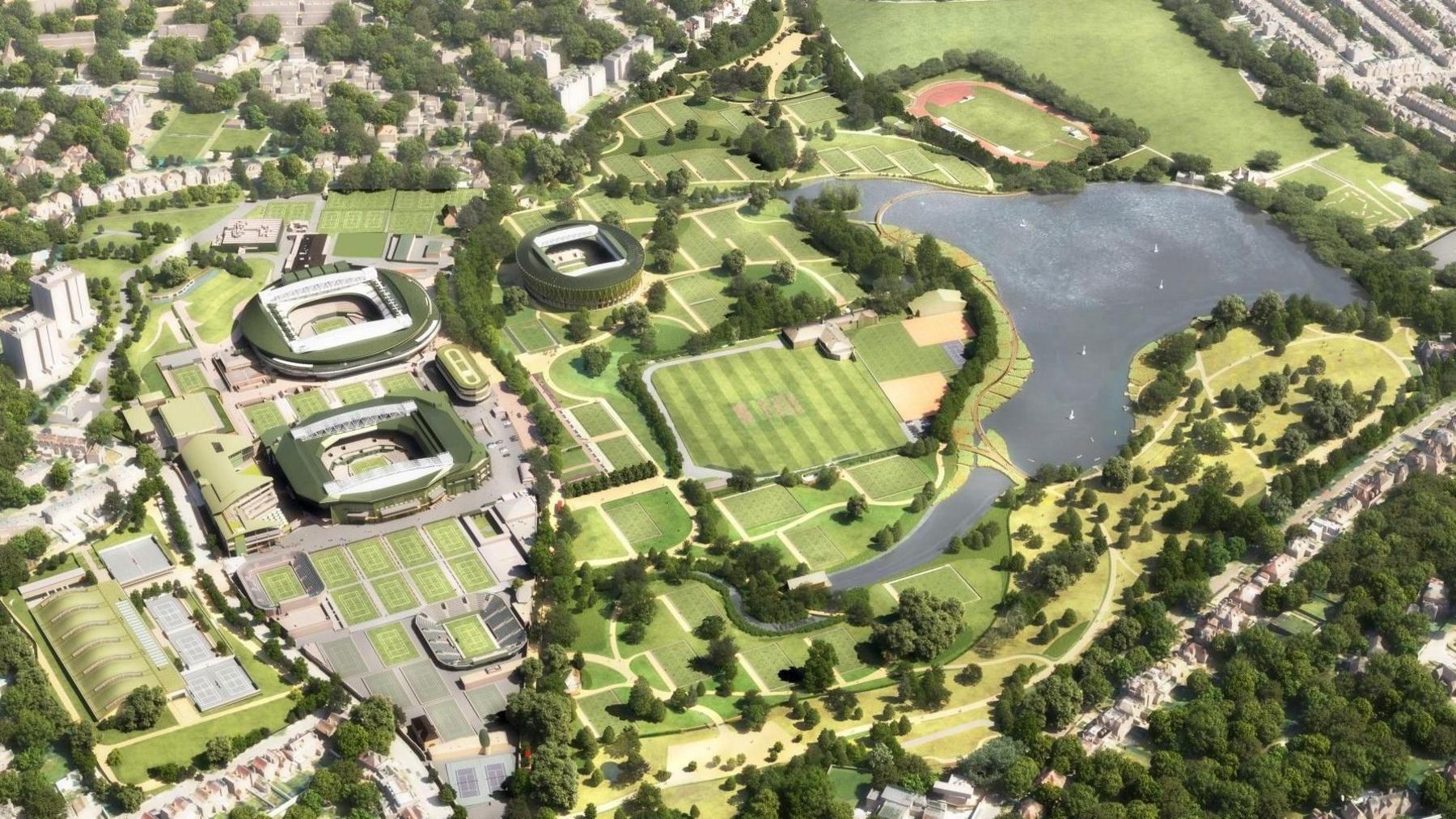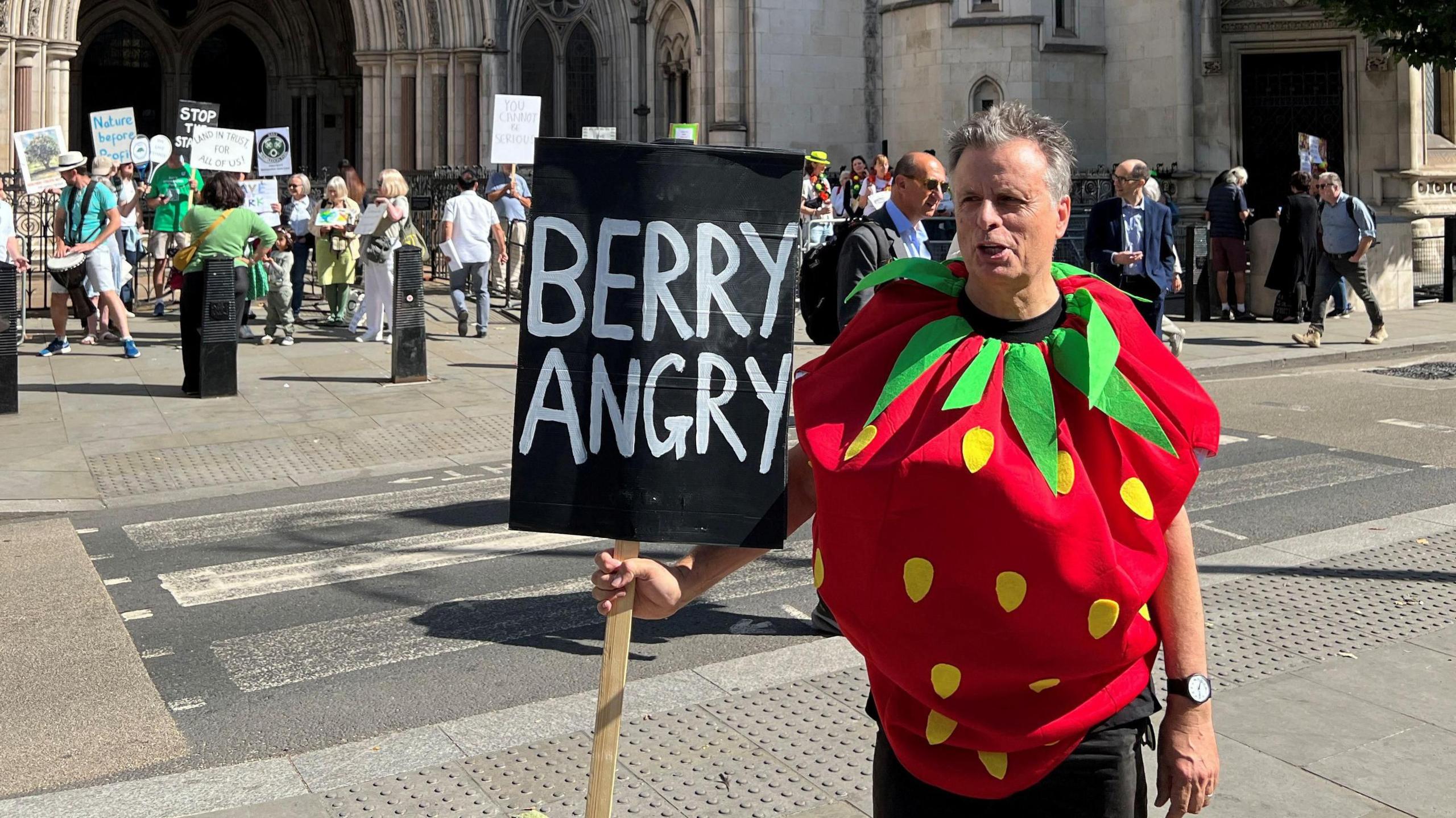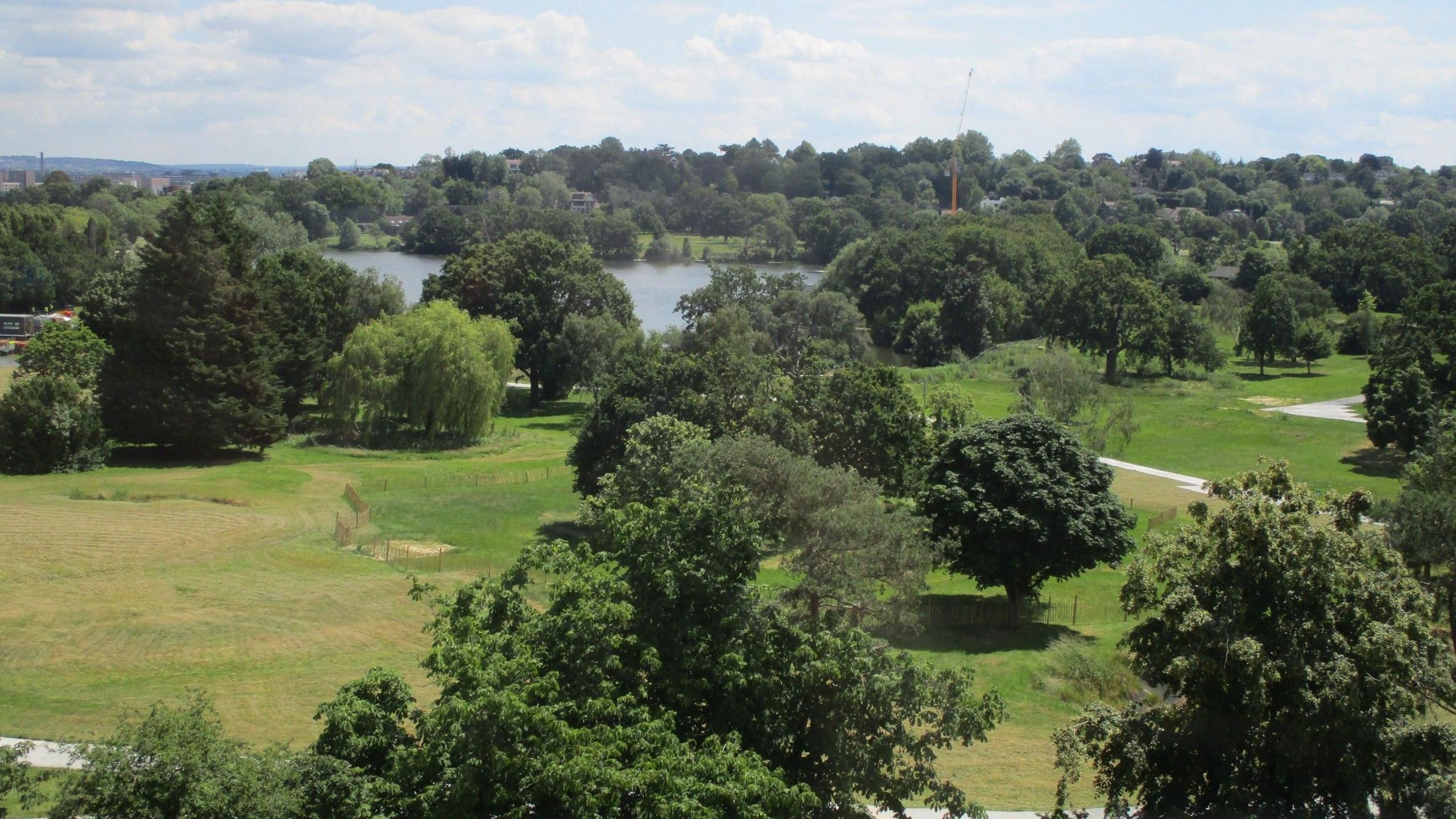Plans to expand Wimbledon can go ahead, judge rules

The All England Club (AELTC) wants to build 38 tennis courts on the former site of Wimbledon Park Golf Club
- Published
Plans to almost triple the size of the Wimbledon tennis site are set to proceed after a campaign group's legal challenge against the decision to grant planning permission was dismissed by a High Court judge.
The proposal which had been approved by the Greater London Authority (GLA) includes 38 new tennis courts and an 8,000-seat stadium.
Save Wimbledon Park (SWP) had argued in court the development on the former Wimbledon Park Golf Club in west London was unlawful as the proposed land was protected.
Deborah Jevans, chairwoman of the All England Club, said she was "delighted" with the decision while the SWP indicated it may challenge the ruling.
Barristers for SWP told the High Court earlier this month that the decision to approve the plans was "irrational" and should be quashed, as Wimbledon Park - a Grade II*-listed heritage site partly designed by Lancelot "Capability" Brown - was covered by restrictions on how it could be used.
The GLA and the All England Club defended the challenge, with the court told that the decision was a "planning judgment properly exercised" and that the restrictions were not "material".

SWP campaigners gathered outside the High Court earlier this month to oppose the plans
Dismissing the challenge, Mr Justice Saini said: "In short, the defendant's decision on the relevance of deliverability, applying to both the statutory trust and the restrictive covenants, was a planning judgment rationally exercised and having regard to appropriate and relevant factors."
The proposals would see seven maintenance buildings, access points, and an area of parkland with permissive public access constructed, in addition to the courts and associated infrastructure.
It would also allow the club to host Wimbledon qualifiers on site.
Wimbledon cannot expand onto parkland, court hears
- Published8 July
Campaigners raise £200k to fight Wimbledon plans
- Published19 June
Wimbledon expansion given planning boost
- Attribution
- Published19 September 2024
Following the ruling on Monday, SWP said it has been "advised that it should" seek to challenge the decision, and that it believed the GLA "did make a significant legal error in the way it dealt with the special legal status of the park".
After Merton Council approved the plans, but Wandsworth Council rejected them, City Hall took charge of the application.
Sir Sadiq Khan recused himself from the process after previously expressing public support for the development and planning permission for the scheme was granted by Jules Pipe, London's deputy mayor for planning.

The site on Wimbledon Park is a Grade II* Heritage Landscape, registered park and garden
He said that the proposals "would facilitate very significant benefits" which "clearly outweigh the harm".
Ms Jevans said at the time that the proposals would deliver 27 acres (11 hectares) of "newly accessible parkland for the community".
In written submissions, Sasha White KC said that the All England Club acquired the freehold for the golf course in 1993 and the leasehold in 2021.
The barrister told the two-day hearing that the land was subject to a "statutory trust requiring it to be kept available for public recreation use" and that when the freehold was acquired, the club entered into "restrictive covenants" governing its use.
He said this meant any plans could not "restrict its use so as not to impair the appreciation of the general public of the extent or openness of the golf course land".
He continued that separate High Court proceedings were ongoing over whether a statutory trust existed, and that if it does, the All England Club has "accepted" that this is "incompatible with the development of the proposal".
A hearing in that case is due to take place in January 2026.
In court, he said: "You could not have a more protected piece of land within the planning system, frankly."
Mark Westmoreland Smith KC, for the GLA, said in written submissions that Mr Pipe received "detailed advice" over the "relevance" of the "alleged" trust and covenants, and made his decision on the assumption that they existed.
The barrister said that the decision was a "planning judgment properly exercised and having regard to the appropriate and relevant factors".
He said that planning officers "advised that the alleged obstacle" that the restrictions would present "was not itself a material consideration".
'Worrying precedent'
In his written arguments, Russell Harris KC, for the All England Club, said that planning officers "acknowledged and had regard to" the trust and covenants.
In his 31-page ruling, Mr Justice Saini said that the authority "properly considered the implications of the development on public open space".
Christopher Coombe, director of SWP, said following the judgment: "This judgment would, if it stands, set a worrying precedent for the unwanted development of protected green belt and public open spaces around London and across the country."
Sir Sadiq said the ruling was "welcome news" that will "cement Wimbledon's reputation as the greatest tennis competition in the world".
Ms Jevans said: "It is clear that we have a robust planning permission that enables us to create a permanent home for the Wimbledon qualifying competition as well as delivering 27 acres of beautiful new parkland for local people, providing public access to land that has been a private golf course for over 100 years."
Listen to the best of BBC Radio London on Sounds and follow BBC London on Facebook, external, X, external and Instagram, external. Send your story ideas to hello.bbclondon@bbc.co.uk, external